Lu Shiow-yen (盧秀燕), now the KMT candidate for mayor in Taichung (story). Lu is a mainlander politician whose family is from Shantung. This means that in Taoyuan the KMT is running a princeling who lost the last election to the current DPP mayor, in Hualien it is running the wife of the current county chief, and in Taichung another mainlander politician who appears to be a machine politician. The Taipei mayor nomination will probably go to a mainlander as well.
Anyone who thought the KMT was going to reform itself should consult the last two decades of KMT history to understand it: it is the political organization of an ethnic colonial ruling class, and can't change without destroying that fundamental organizing principle of mainlander control. This is why in the long run the KMT is doomed. NPP politician Freddie Lim said in a recent trip to Washington DC that the NPP is going after the disaffected Blues who cannot vote for their grandfather's party or the DPP, and hope to replace the KMT as the number 2 party.
Note that Lu's sign prominently displays her party affiliation. This is not a bad thing here in battleground Taichung where voters are divided between the parties and often vote on personal, family, and local connections. In my district, for example, we supported the DPP at the legislative level but elect KMT politicians at the local level.
Much of the vote will be determined by whether the fast growing population of Taichung moves its household registrations here. Since many of them come from further south, where they are more likely to be green, the DPP needs to conduct GOTV drives by emphasizing the need to switch household registrations. However, many of these new voters rent homes, and landlords are often reluctant to give permission to move the household registration because then they have to pay tax on the rental income.
More after READ MORE....
Lu's rival for the KMT Taichung mayoral nomination, Johnny Chiang. On his signs the KMT logo is often downplayed or non-standard, as on this one. His party affiliation is signaled by overall color.
Current DPP Taichung mayor Lin with a candidate. The sign asks voters to support the DPP candidate in the phone poll, and signals which candidate Lin supports.
Let me do! says his English slogan.
A service office in Fengyuan for two local KMT politicians.
DPP legislative (left) and city council (right) candidates advertize their "local power" and ask voters to continue to support them.
In Hengchun politicians strike a "man of the people" pose as they wish everyone a happy new year and proclaim they will "change the future".
In Hengchun a DPP politician offers new year wishes in Chinese and English. English is sometimes seen on candidate signs, but my impression is that it is more a DPP thing than a KMT.
A candidate's sign says "Women Power of the New Era; Xin is here with you." Since the last character of her name, Xin, sounds like "heart", perhaps she is attempting a play on words (my heart is here with you).
Happy New Year from a Kaoshiung DPPer
This information packed sign overlooks the Kaohsiung RR station platform.
Very professional looking politician has no party affiliation on her sign. From Fengshan, she was one of four DPP city councilmen running for Mayor in K-town.
DPP Mayor Lin signals his support. The sign asks for people to support her in the phone poll.
This massive sign overlooks a popular temple in Tanzih in Taichung.
This progressive-looking sign from a DPP candidate asks for the people's support in the phone poll.
In Shigang district of Taichung, DPP Mayor Lin shows his support.
In Jhuolan in Miaoli, a candidate's sign overlooks the city center where five roads meet, a prominent market space. Prominently displayed are the area's signature foods, grapes and star fruit. The fields west of town hosted Japanese airfields in the second world war, with fake planes made of bamboo to lure allied bombers.
DPP Mayor Lin hands you this candidate, who asks for your support in the phone poll.
A longtime DPP politician in Fengyuan.
_______________________
[Taiwan] Don't miss the comments below! And check out my blog and its sidebars for events, links to previous posts and picture posts, and scores of links to other Taiwan blogs and forums!
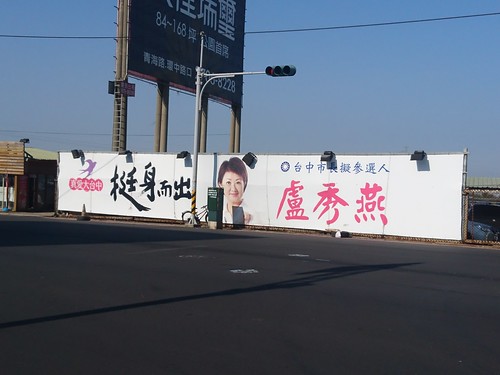
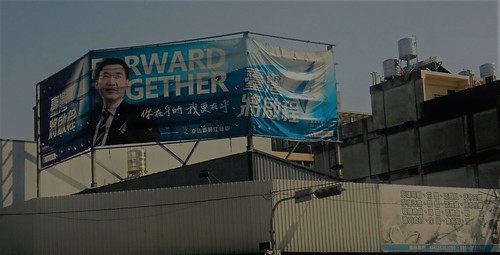

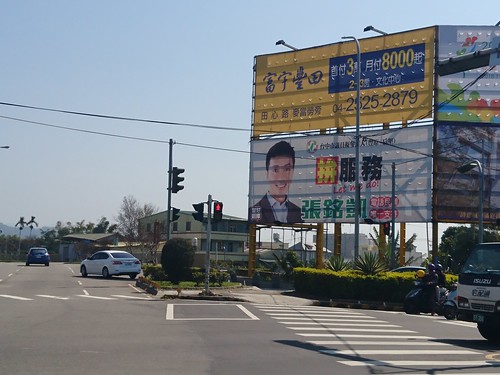
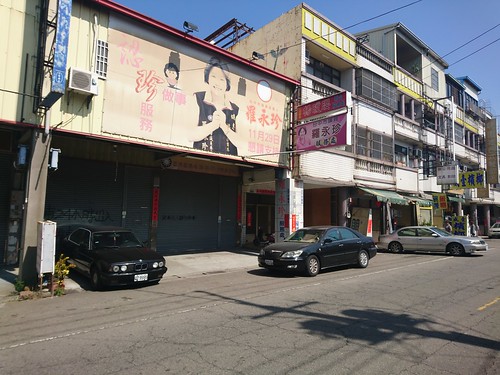
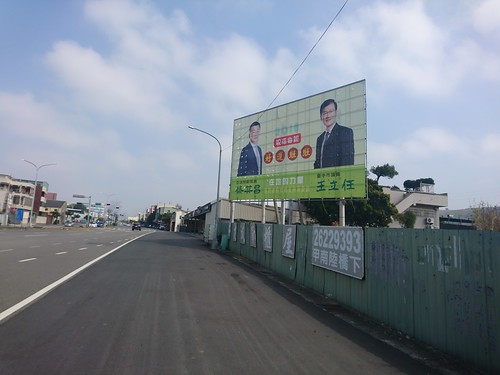
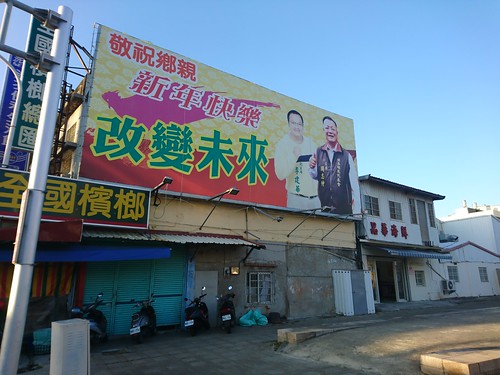
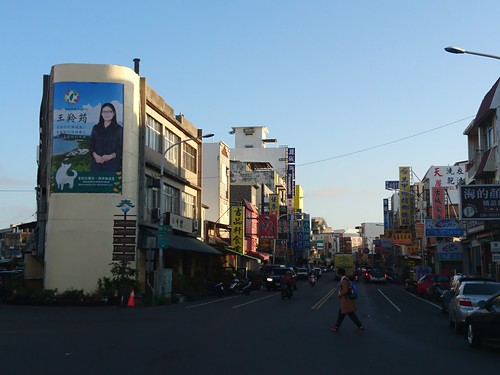
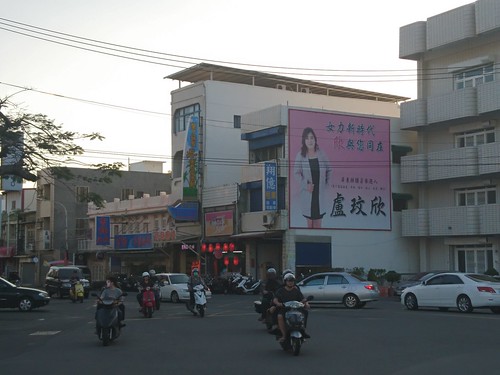
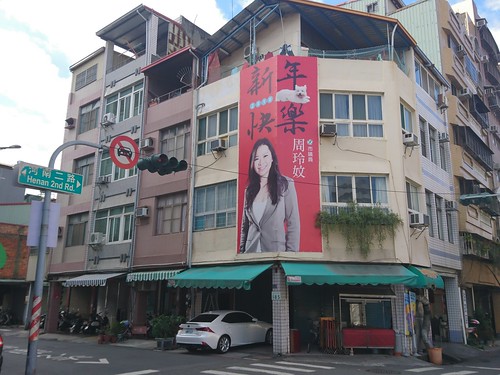
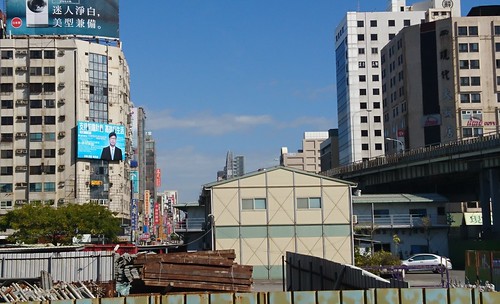
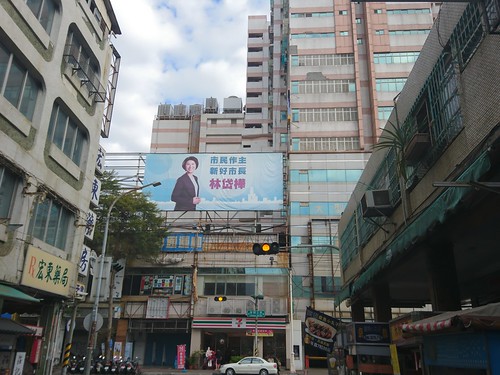
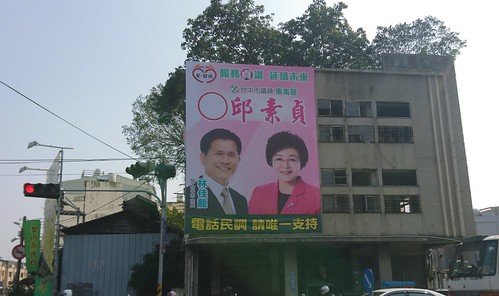
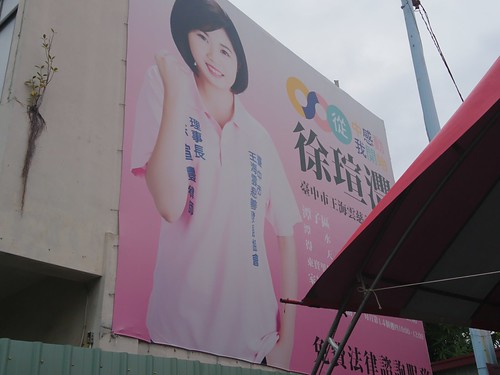

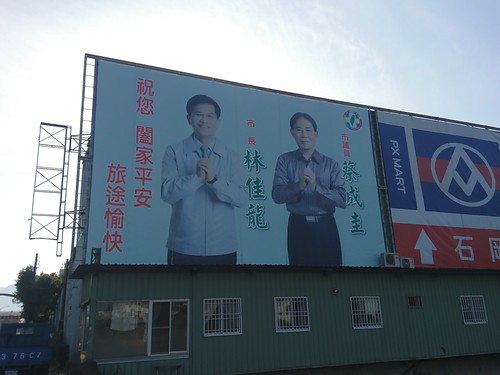
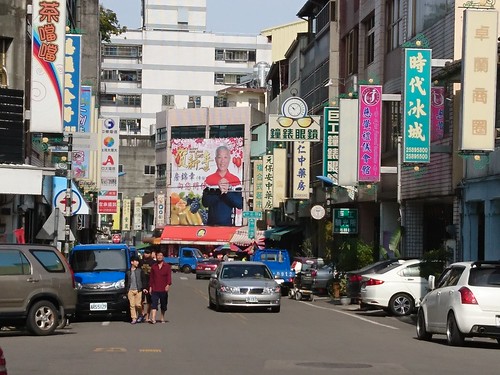
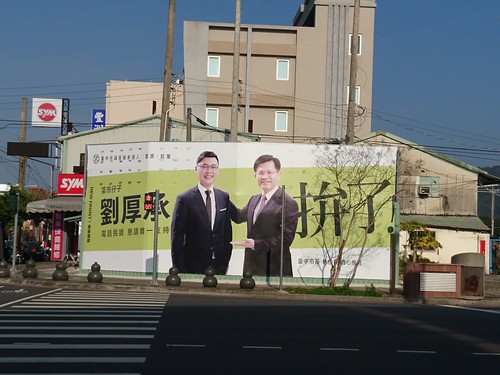
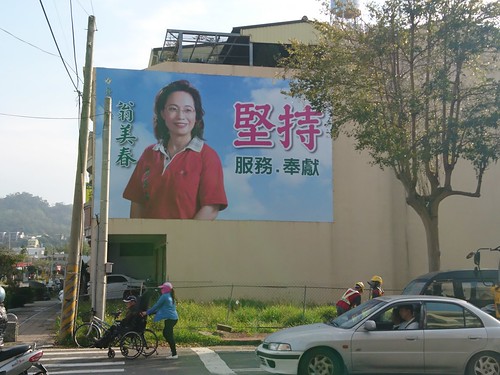
4 comments:
NPP will never be able go out of the Shadow of DPP. Because of one reason that everything in Taiwan politics revolves around. China.
Taiwan politics is all about China. You are either pro-china or anti-china. NPP is certainly anti china and so they will always be in DPP's shadow.
KMT will be back when this anti-china feeling in Taiwan society is ebbed. which it will. Constant confrontation with is not good for Taiwan. It might take 8 years of two dpp terms but KMT will be back
Good morning Michael,
I enjoy these photos you took and the insights you offered. I still don't understand the insistence of the (badly-translated) bilingual signs and notices, not only the election campaigns, but also the bilingual signs found everywhere in Taiwan.
The family background of a politician, particularly whether Mainlander or Hoklo or Hakka or Aboriginal, should not matter. Your commentary is becoming rather divisive in the wrong way. At the end of the day, Hakka and Hoklo are as much from Mainland China as the "Mainlander." We can only speak of justice when parliament is composed 100% of Aboriginals, the president is aboriginal, and all land in the plains is returned to Aboriginals. Time for "Taiwanese" to drop the label they do not own and pay rent in this country of Taiwan!
The family background of a politician, particularly whether Mainlander or Hoklo or Hakka or Aboriginal, should not matter. Your commentary is becoming rather divisive in the wrong way.
No, my commentary just reflects the divisions created by the colonial KMT state. If the KMT had unified the Han, instead running an ethnic-based colonial government, then you would be correct.
Post a Comment